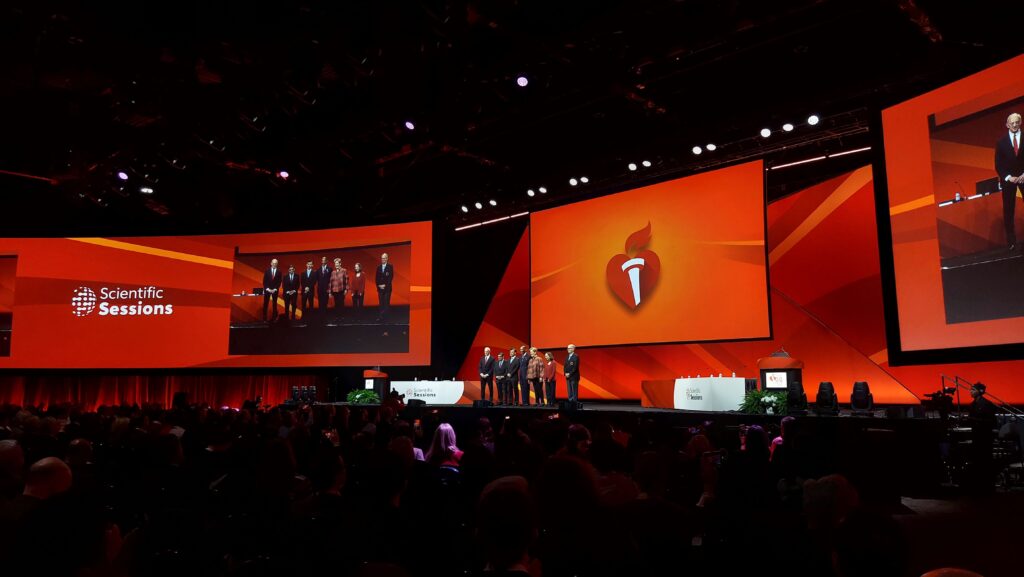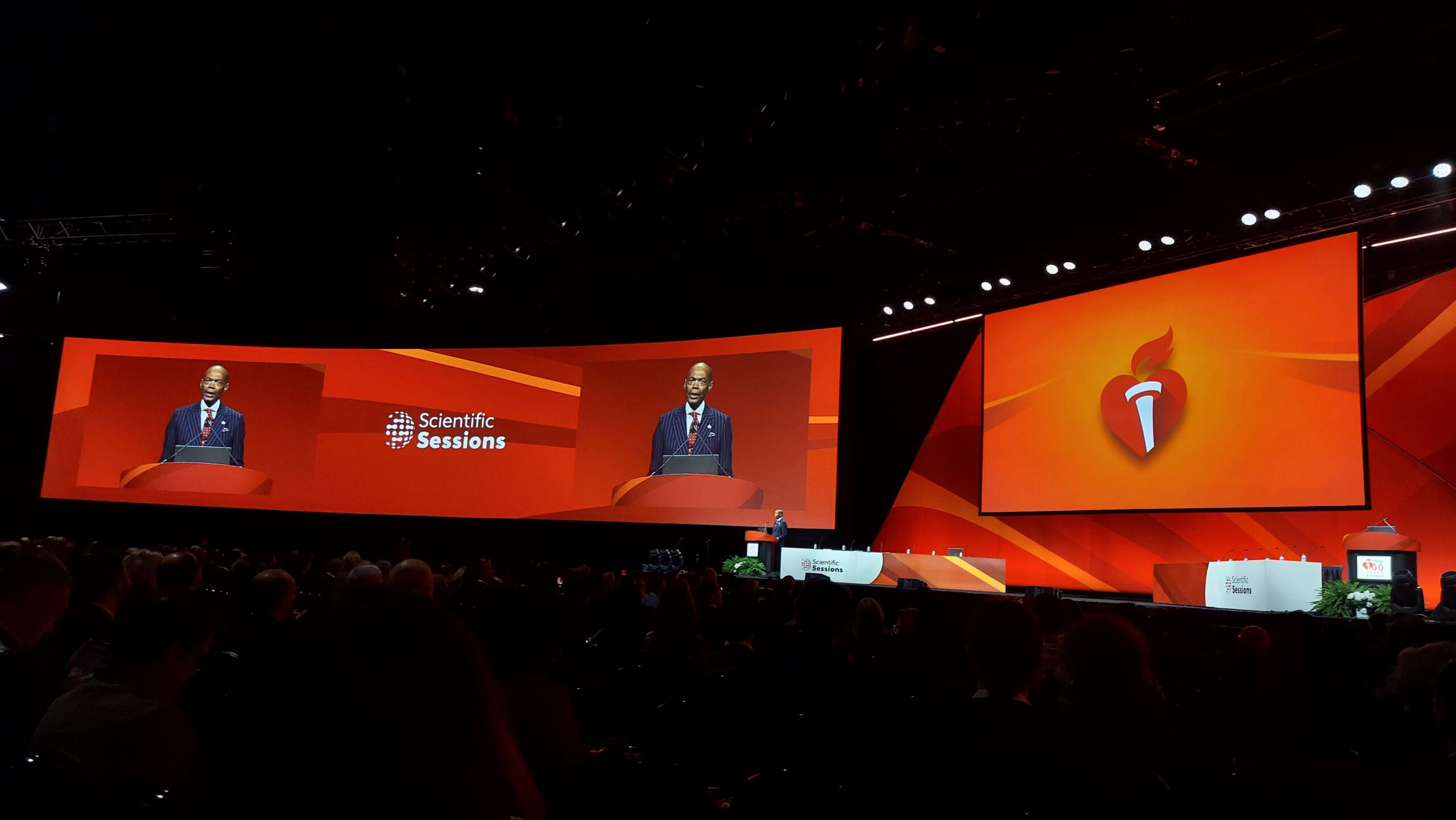Highlights from the past and hope for the future were both on display at the 2024 Scientific Sessions Opening Session as the American Heart Association marked its 100th birthday by celebrating a century of innovation.

The Opening Session, held in the Main Event Theater I in the McCormick Place Convention Center in Chicago, IL, kicked off with an electrifying and inspiring video, complete with a matching light show. Keith Churchwell, MD, FAHA, president of the American Heart Association, from New Haven, CT, welcomed the crowd of researchers, physicians, scholars and more back to Chicago, where the American Heart Association was founded in 1924.
Dr. Churchwell honored the future of cardiology by recognizing the new class of Fellows of the American Heart Association. The designation recognizes their scientific accomplishments, leadership and dedication to the American Heart Association’s mission. Past and current fellows joined the new fellows in standing to recognize all levels of participation in an impressive display highlighting the theme of the Opening Session: blending the past and the future.
Two scientists from the Eastern States Region were among those honored with the Distinguished Scientist Award. Dr. Churchwell announced six awardees recognized for extraordinary contributions to cardiovascular and stroke research. Pedro J. del Nido, MD, FAHA, from Boston Children’s Hospital, and Jane W. Newburger, MD, MPH, FAHA, from Harvard Medical School, were among the award recipients.

For Committee on Scientific Sessions Programming Chairman Amit Khera, MD, MSc, FAHA, FACC, FASPC, Scientific Sessions is all about hope.
“Sparking hope is one of the reasons the American Heart Association was founded 100 years ago,” said Dr. Khera. During Dr. Khera’s address, videos from several well-known scientists and American Heart Association volunteer leaders looked back on 100 years of innovation and the impact of the Scientific Sessions conference. Dr. Khera highlighted just a few of the American Heart Association milestones over the last century, including the first Scientific Sessions conference in 1925, the first funded grant in 1948 and the first guidelines released by the American Heart Association in 1961.
“Continuing to innovate is one of the bast ways to honor our past,” said Dr. Khera, as the Opening Session moved seamlessly into the first Late-Breaking Science session. As Dr. Kehra explained, Late-Breaking Science showcases the greatest recent innovations.
The first Late-Breaking Science presentation, called Celebrating a Century of Cardiovascular Science: From Prevention to Treatment, to Cure, looked at several aspects of heart disease, where the science has been, and where it could be going.
“Our mission is to pay attention to our health,” said Valentin Fuster, MD, PhD, with Mount Sinai Health System in New York City and past president of the American Heart Association. “That is the challenge of this next century.”
Dr. Fuster also talked about the heart and brain connection.
“It gets into the heart, but eventually it may get into the brain,” he said of heart disease risk factors. Dr. Fuster stressed the importance of looking out for the future by teaching kids healthy habits early on.
Other Late-Breaking Science presented Saturday morning included a study showing the impact of lowering blood pressure for Type 2 diabetes patients and another on how a weight loss drug could help patients with heart failure with preserved ejection fraction.

Sarah Cuddy, MD, with Brigham and Women’s Hospital in Boston, discussed a study about gene therapy for patients with transthyretin amyloidosis with cardiomyopathy, or ATTR-CM. She shared some of the important developments in the search for a cure.
“This has been an incredibly exciting decade,” said Dr. Cuddy. “I believe the next decade will bring us a cure for this disease.” Just 50 years ago, she said, the disease was considered insignificant.
At the American Heart Association, our future is about improving yours. The 2024 Scientific Sessions Opening Session celebrated how far we have come in cardiovascular disease research, treatment and prevention, while looking towards the future at how far we can still go.
“What gives me hope for the future?” asked Dr. Khera. “You.”
